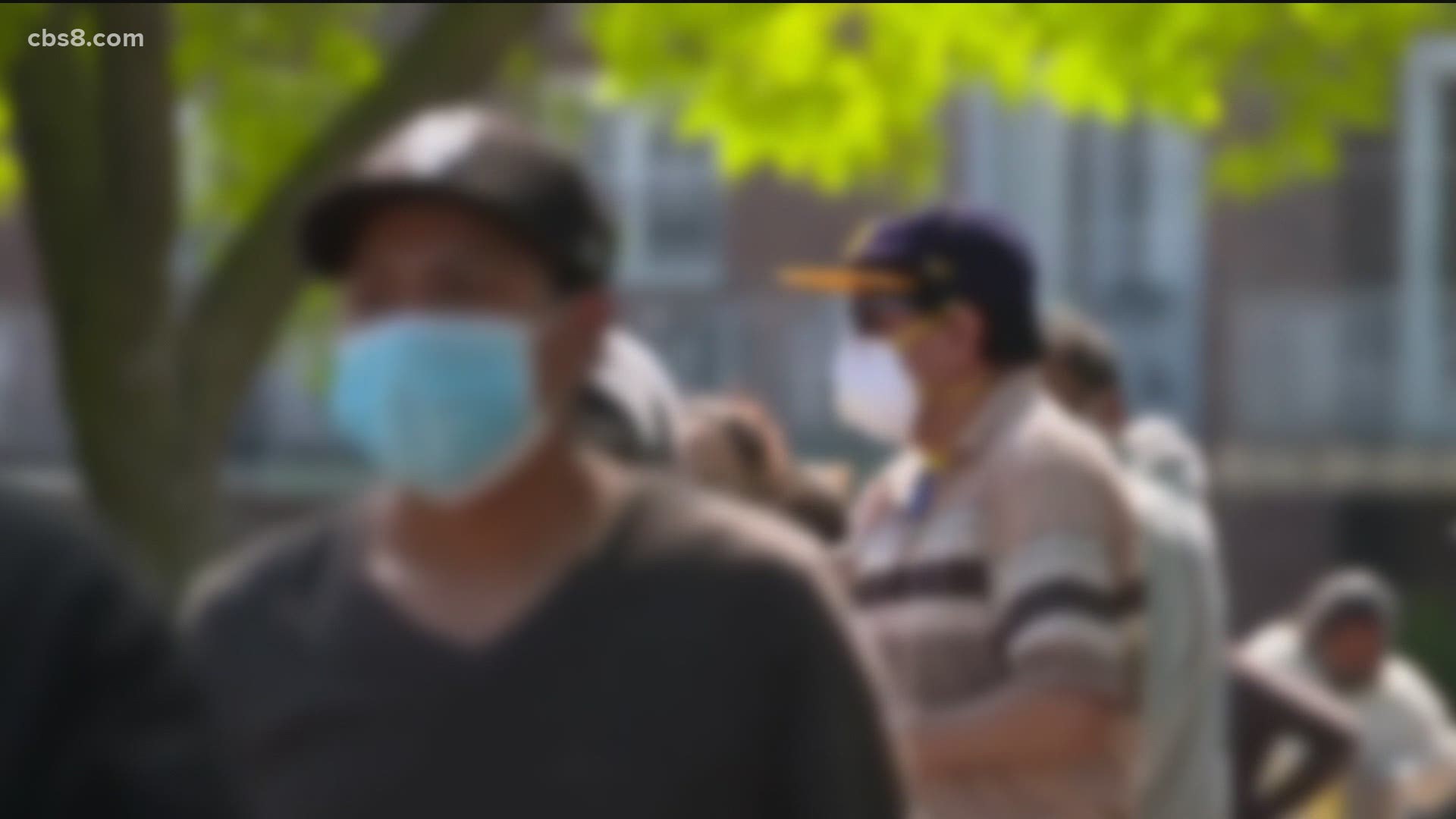SAN DIEGO COUNTY, Calif. — San Diego's Latino community is bridging the gap in lagging vaccination rates, after community organizations pushed for better flow of information and outreach in English and Spanish.
Since the start of the pandemic, the county's Latino population has been disproportionately hit. At first, the virus was spreading throughout the community more than in others.
"Unfortunately, Latinos were on the front lines when it came to work, when it came to living situations, when it came to transportation and so we saw the numbers skyrocketing among Latinos very early on," Nancy Maldonado, President and CEO of the Chicano Federation, said."
Maldonado added that, in general, income dictated who would be infected. Frontline workers still working during the pandemic were affected more, as were people who lived with relatives in multigenerational housing.
The story was the same with the vaccine at its introduction, Maldonado said.
Data from San Diego County shows vaccinations among Latinos lagged behind every other race in the county, except for Black residents, both under five percent. In May, the latest numbers show Latinos are up to 51 percent vaccinated.
"It took a lot of advocacy, education and a lot of outreach," Maldonado said. "We're seeing those numbers start to come up and we're seeing Latinos are getting vaccinated, but there's still a lot of work to do."
Some of that work is being done by promotoras, non-healthcare professionals trained to give basic healthcare information. During the pandemic, many promotoras have focused on outreach and myth-busting about COVID-19 and the vaccines.
"I was really like, 'I'm not sure how this is going to turn out for myself,' getting the vaccine," promotora Miriam Rodriguez admitted. At the start, she was hesitant about the vaccine; and even though she's come around, she still sees hesitancy daily from Latinos.
Brand name recognition (Johnson & Johnson being known for other products like baby oil and powder), rumors of effects on the reproductive system, cultural differences, and the language barrier all can play a part.
We connected Rodriguez with Dr. Marie Russell, True Care's Chief Medical Officer, to help explain some of the concerns Latinos have, and in turn help her as a promotora.
"None of them (the vaccines) affect our genetic makeup, our DNA, so they have no impact on our reproductive systems," Dr. Russell explained.
The optics of the vaccine's rollout--where in some cases it was being offered in parking lots--did not help, Russell added.
For Rodriguez, seeing National City Mayor Alejandra Sotelo-Solis enter the Johnson & Johnson trial is what convinced her to get the shot.
"I think, similar to Miriam's experience... as more people get vaccinated and family members see other family members get vaccinated, and more importantly, leaders within the community..."
Dr. Fabian Rivera-Chavez, an assistant professor and researcher at the University of California San Diego has been focusing on vaccine disparities. He says part of the key is to speak about and educate on the importance of vaccine, not just with COVID-19 but also historically.
"We're close to 50 percent vaccination rates in Latinos, which is way above the national average," Rivera-Chavez said. "Nationally, in the United States, we're only seeing about 25 percent first dose vaccinations."
Outreach and education is what the Chicano Federation, the County, and several other local groups have been working on. Social media ads, radio campaigns, and even TV ads targeted toward Latinos are helping encourage people to get the shot, Maldonado said.
"It comes down to trust," she explained. "We want to hear it from someone that we trust; and we trust people who look like us, who speak the language, who live in our communities and we trust people who can relate to our challenges."
To find out where you can get your vaccine for free, learn how the vaccine works, and what's best for you, visit the San Diego Latino Health Coalition.
Watch Related: VERIFY: Clearing up COVID-19 vaccine rumors (Jan 2021)

